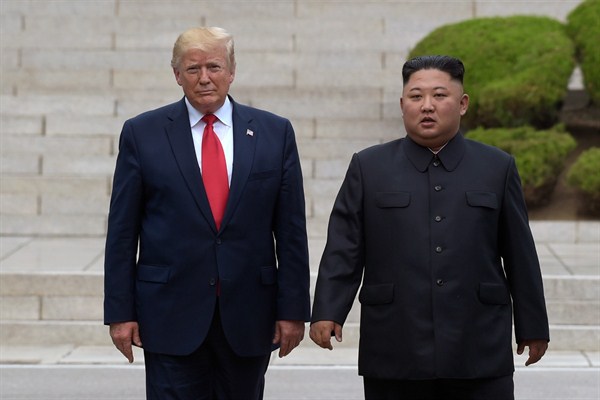Earlier this month, American and North Korean officials gathered in Stockholm for a closely watched round of talks on North Korea’s nuclear program. The State Department’s official readout was upbeat: Over more than eight hours of “good discussions,” negotiators “discussed the importance of more intensive engagement.” The U.S. delegation “previewed a number of new initiatives” and accepted an invitation from Sweden to reconvene in two weeks.
By contrast, North Korea’s interpretation of the meeting sounded like it came from a parallel universe. Kim Myong Gil, Pyongyang’s chief nuclear negotiator, said in remarks after the meeting that he was “very displeased” at “Washington’s failure to abandon its outdated stance and attitude” that North Korea must give up its nuclear weapons. North Korea’s Foreign Ministry later added that “we have no intention to hold such sickening negotiations” without a shift in the “hostile policy” of the United States.
The U.S. delegation in Stockholm reportedly offered North Korea a three-year suspension of sanctions on the country’s coal and textile exports, in exchange for verifiably dismantling a key nuclear facility and ending production of highly enriched uranium. Whatever the actual offer was, Pyongyang’s apparent rejection of it is only the latest in a string of disappointments for U.S. officials, who have struggled to sustain a meaningful pace of engagement with North Korea. The Stockholm meeting was the first round of working-level consultations since President Donald Trump’s failed summit meeting with Kim Jong Un in Hanoi, in February. Stephen Biegun, the U.S. special envoy for North Korea, did hold consultations with his North Korean counterpart during the lead-up to that meeting, but North Korea limited the agenda to planning and logistics.

